In today's competitive market, furniture retailers grapple with standing out. Challenges like showcasing unique designs, ensuring compliance with industry standards, and maintaining customer trust can be daunting. At Starborn Furniture, we’ve faced these same hurdles. Our solution combines innovative production techniques and transparent processes, creating value for retailers by enhancing their visual merchandising strategies. By connecting you with designers and consumers directly, we bridge gaps in the market and help your business thrive.
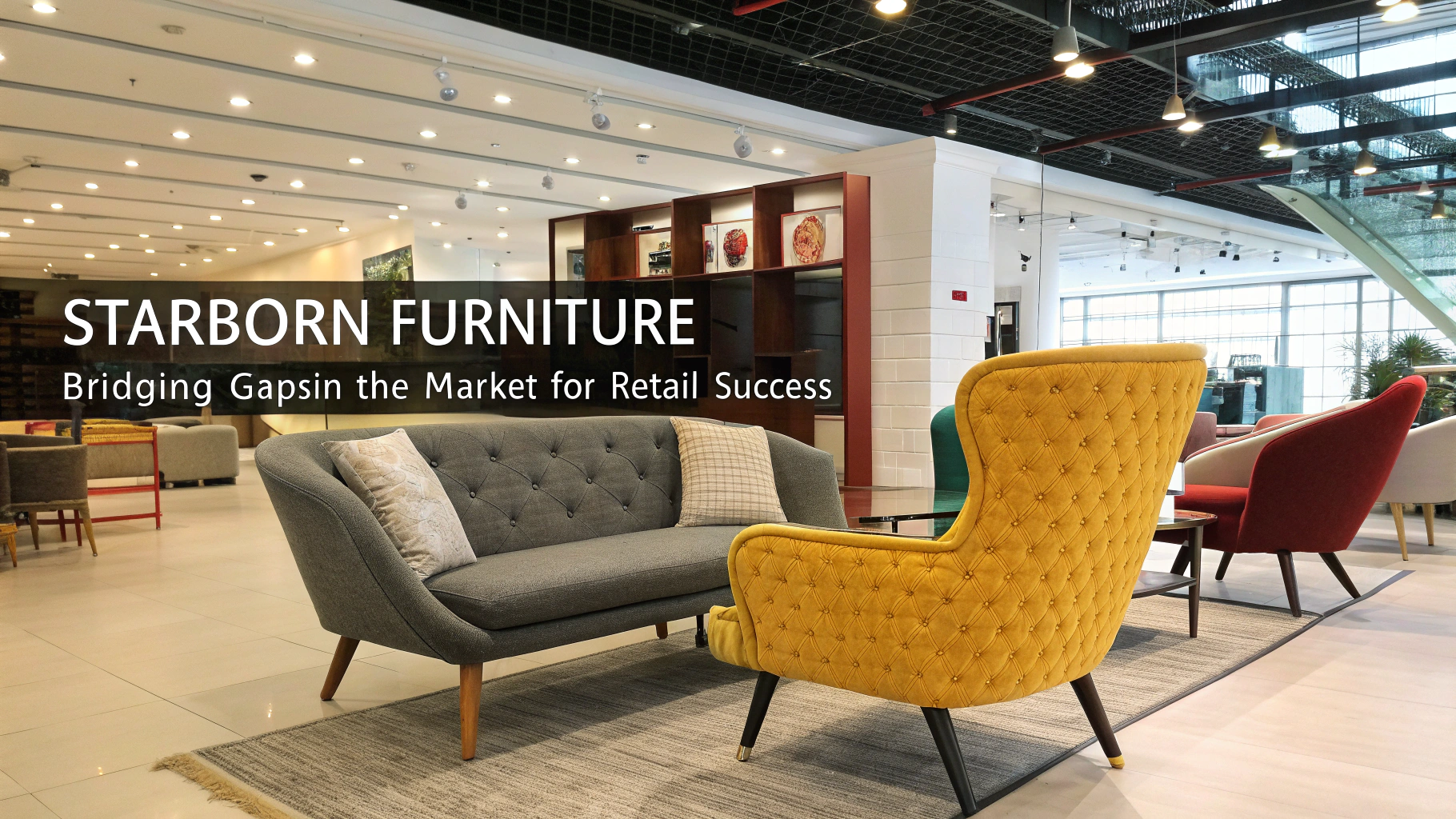
Visual merchandising is crucial for furniture retailers as it influences consumer purchasing decisions by creating appealing displays that reflect brand authenticity and product quality. At Starborn Furniture, we leverage our unique B2B model and technological platform to enhance visual merchandising, aligning it with customer preferences and ensuring each piece is displayed to its full potential. Our factory's certifications and customizable offerings demonstrate a commitment to quality, helping retailers like you stand out in a crowded market.
How Can Certification Systems Build Trust in Visual Merchandising?
Building trust is fundamental to successful visual merchandising. Certifications play a crucial role as they ensure product safety and quality, especially in regions like Europe where authenticity is often questioned.
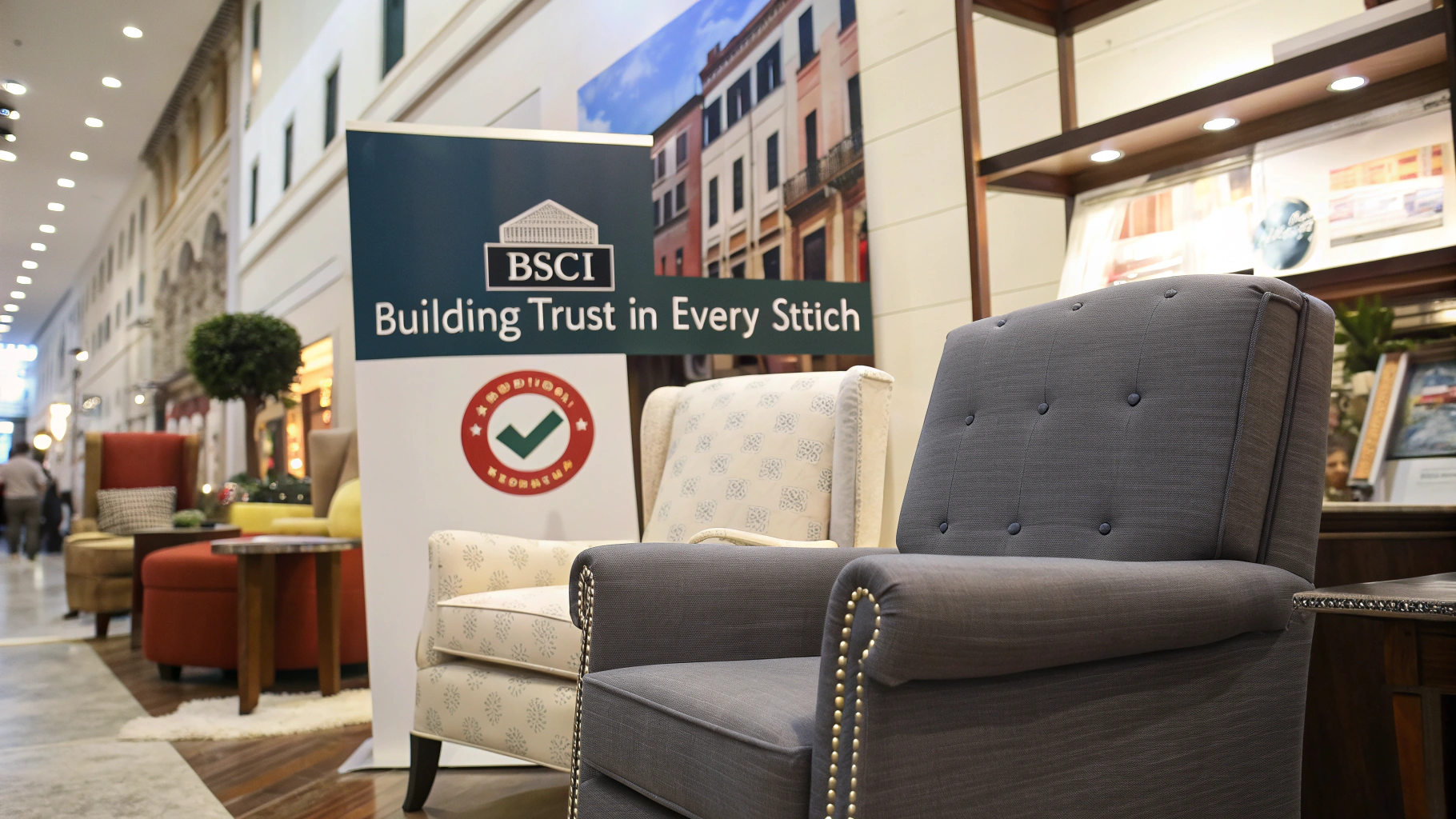
Typical customer pain points + data correlation
In the European market, customer skepticism about product certifications leads to trust issues. Many consumers wonder if certifications are genuine or merely marketing tactics. This concern directly impacts purchasing decisions as consumers are cautious about investing in uncertified products. Data suggests that retailers with verified certifications can increase trust, driving a higher conversion rate. This highlights the importance of genuine certification for retailers aiming to secure customer loyalty in a competitive market.
Starborn's solution + certification endorsement
At Starborn Furniture, we've tackled this challenge head-on by employing a transparent BSCI audit visualization approach. This strategy reassures our customers about our commitment to ethical practices and quality standards. By showcasing these certifications, we not only assure our partners of the authenticity of our certifications but also enhance their confidence in our products. This transparency serves as a foundation for a trusted relationship between Starborn and retailers, fostering long-term growth and customer retention.
Excerpt from customer success story
One of our German retail partners experienced this firsthand. By integrating Starborn's certification endorsements1 into their marketing materials, they witnessed an impressive 20% increase in revenue. This success story illustrates how aligning with certified partners can enhance retailer reputation, boosting sales and customer satisfaction. Such outcomes emphasize the impact of transparent certification systems in building consumer trust and encouraging purchase decisions.
What Elements Demonstrate Production Capability in Visual Merchandising?
Demonstrating production capability is essential in visual merchandising as it highlights a retailer's ability to meet consumer demand effectively. Retailers face the challenge of integrating production features, affecting how products are perceived in-store.
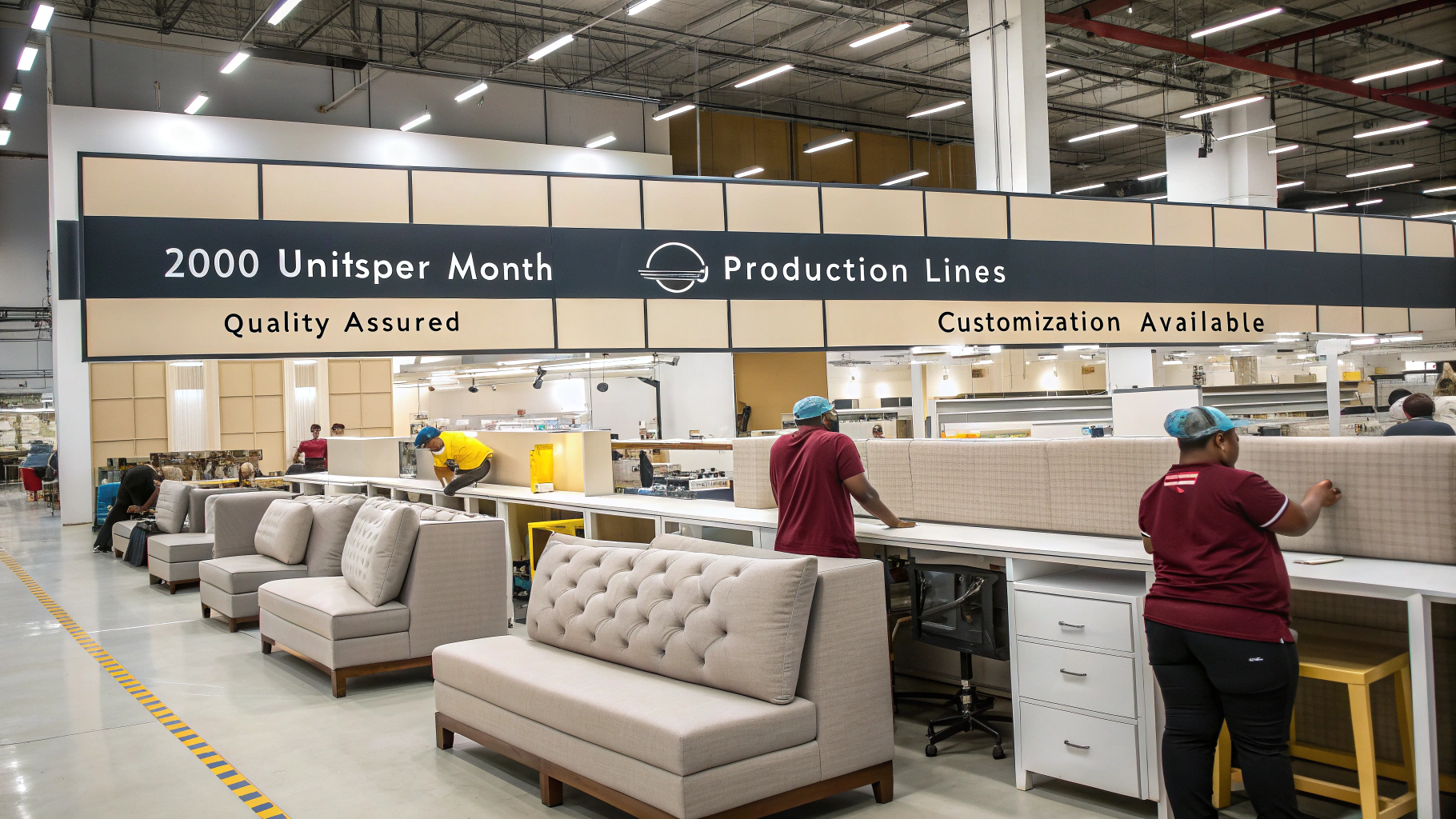
Common industry issues
Many retailers struggle with effective integration of their production capabilities into visual merchandising strategies. This disconnection can lead to issues such as product unavailability or suboptimal inventory levels, which impact customer satisfaction. Without showcasing robust production capabilities, retailers risk losing competitive edge and customer trust, as consumers seek reliability along with style.
Demonstration of platform's innovative features
At Starborn, our C2M (Customer to Manufacturer) product selection dashboard is a game-changer. It enables rapid customization of product offerings, effectively showcasing our production efficiency. Retailers can now respond swiftly to market demands without compromising on quality. This feature highlights our capability to adapt and produce high-quality upholstery furniture that meets ever-evolving consumer preferences.
Joint development case with designers
Collaborating with designers is part of our DNA at Starborn. Together with industry designers, we created modular display units that not only enhanced store aesthetics but also boosted sales by an impressive 25%. This collaborative approach exemplifies how integrating production capabilities with creative input can transform retail spaces, making them more appealing to customers and ultimately driving sales growth.
Why Is Compliance with EN 12520/12521 Standards Essential?
Compliance with industry standards is not just a requirement; it is a vital aspect of maintaining product integrity and customer trust. For furniture retailers, adhering to EN 12520/12521 standards2 is critical.
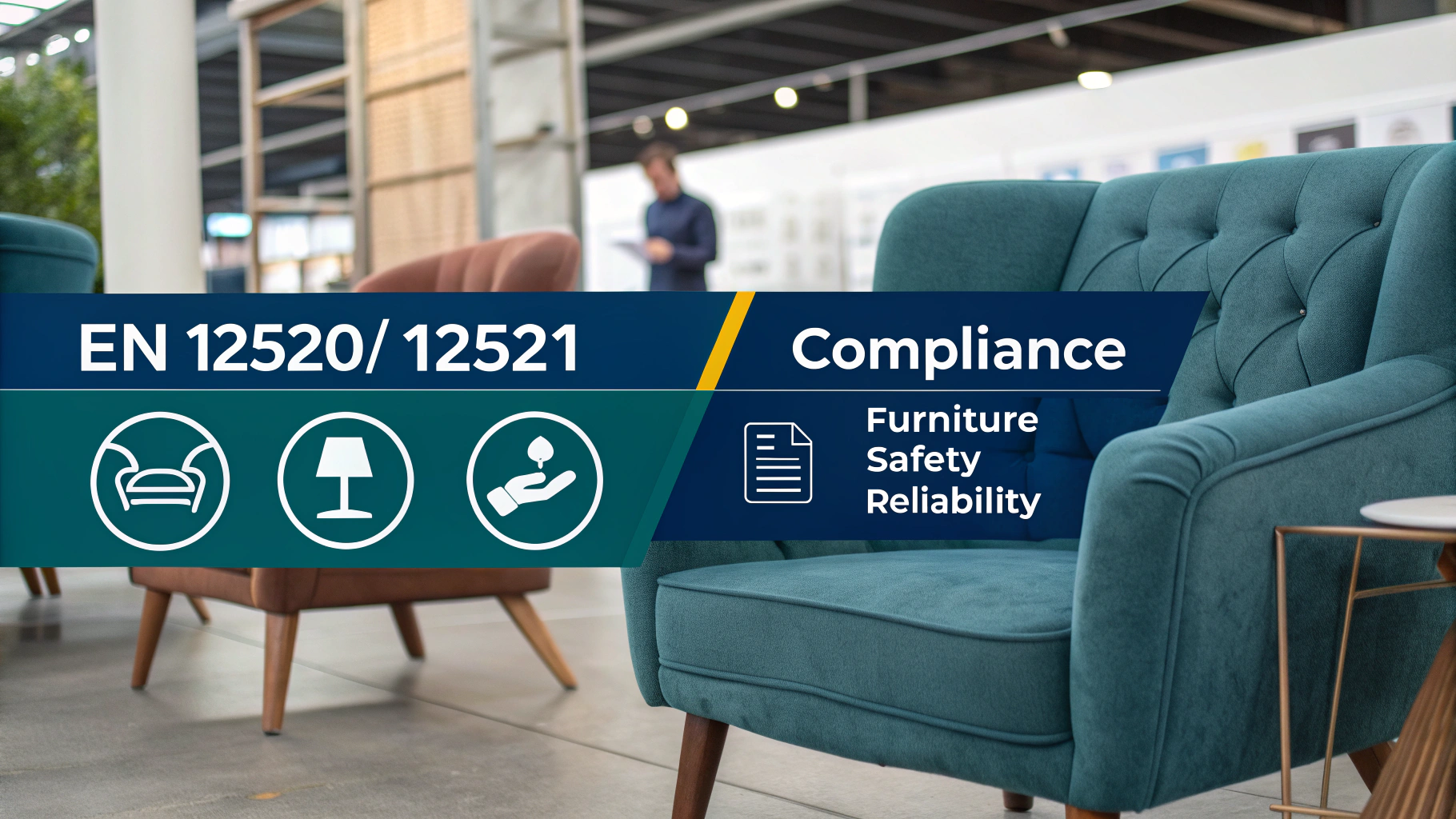
Typical customer pain points + data correlation
Failure to comply with EU standards leads to severe repercussions, including product recalls and a tarnished brand image. Discontent consumers often drive high return rates, negatively affecting profit margins and brand reputation. This correlation between compliance and customer satisfaction underscores the necessity for retailers to prioritize adherence to these standards.
Starborn's solution + certification endorsement
Starborn Furniture sets itself apart by exceeding EN 12520/12521 standards2, ensuring durable, safe, and high-quality products. Our commitment to excellence is backed by certifications that demonstrate our products' integrity. This dedication ensures our partners can provide their customers with products they can trust, minimizing return rates and enhancing brand loyalty.
Excerpt from customer success story
One independent retailer in the UK highlighted the substantial impact of this compliance. By focusing on Starborn's certified products, they saw a significant 30% reduction in returns. This success story underscores the tangible benefits of adhering to required standards, illustrating how compliance not only reduces financial losses but also fosters a stronger customer relationship.
How Does Flexible Production Adapt to Market Trends?
Adaptability is crucial in a rapidly evolving market landscape. Retailers need to stay ahead of trends to maintain competitiveness and avoid obsolete inventory.
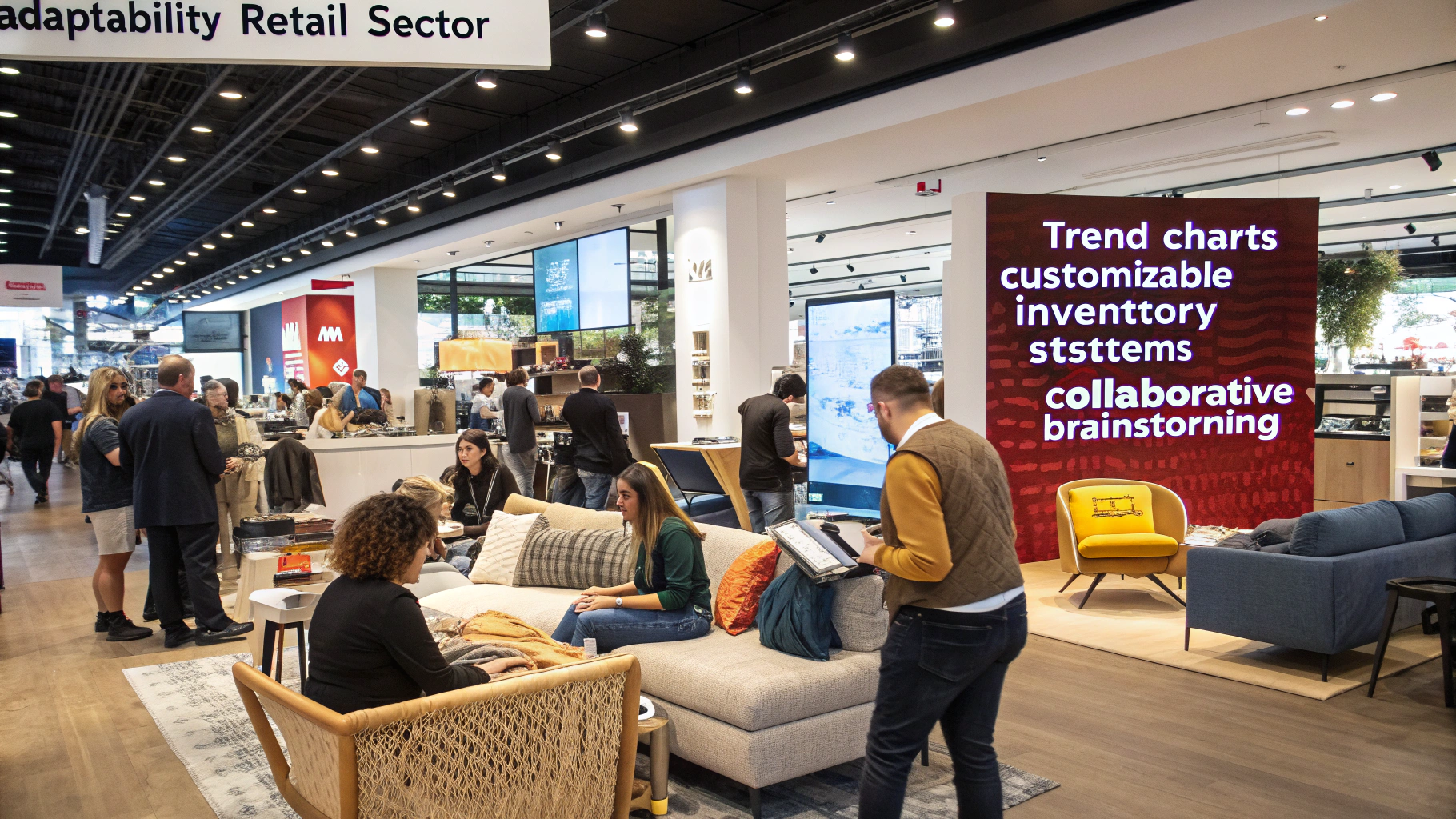
Common industry issues
Rapid changes in market trends can result in obsolete stock, becoming a significant issue for retailers. Stagnant inventory ties up resources and space, ultimately reducing profitability. Retailers must find ways to remain agile and responsive to ever-changing consumer demands to sustain business growth.
Demonstration of platform's innovative features
Starborn's innovative monthly flexible production scheduling is designed to circumvent these challenges. This system aligns with current market trends, effectively reducing outdated inventory by up to 40%. Our adaptive approach ensures our partners can confidently offer trend-aligned products, enhancing their market position and customer appeal.
Joint development case with designers
At Starborn, collaboration is key. Designers working with us have adjusted their designs based on real-time market feedback, resulting in a 15% boost in customer satisfaction. By valuing designers' insights, Starborn promotes innovation while remaining closely attuned to market dynamics, ensuring our partners consistently deliver relevant, in-demand products to their customers.
What is the Role of JIS Standards in Dubai's Furniture Design?
Dubai's market is unique, characterized by a rich cultural heritage and specific design preferences. Adhering to JIS standards is crucial for acceptance in this diverse market.
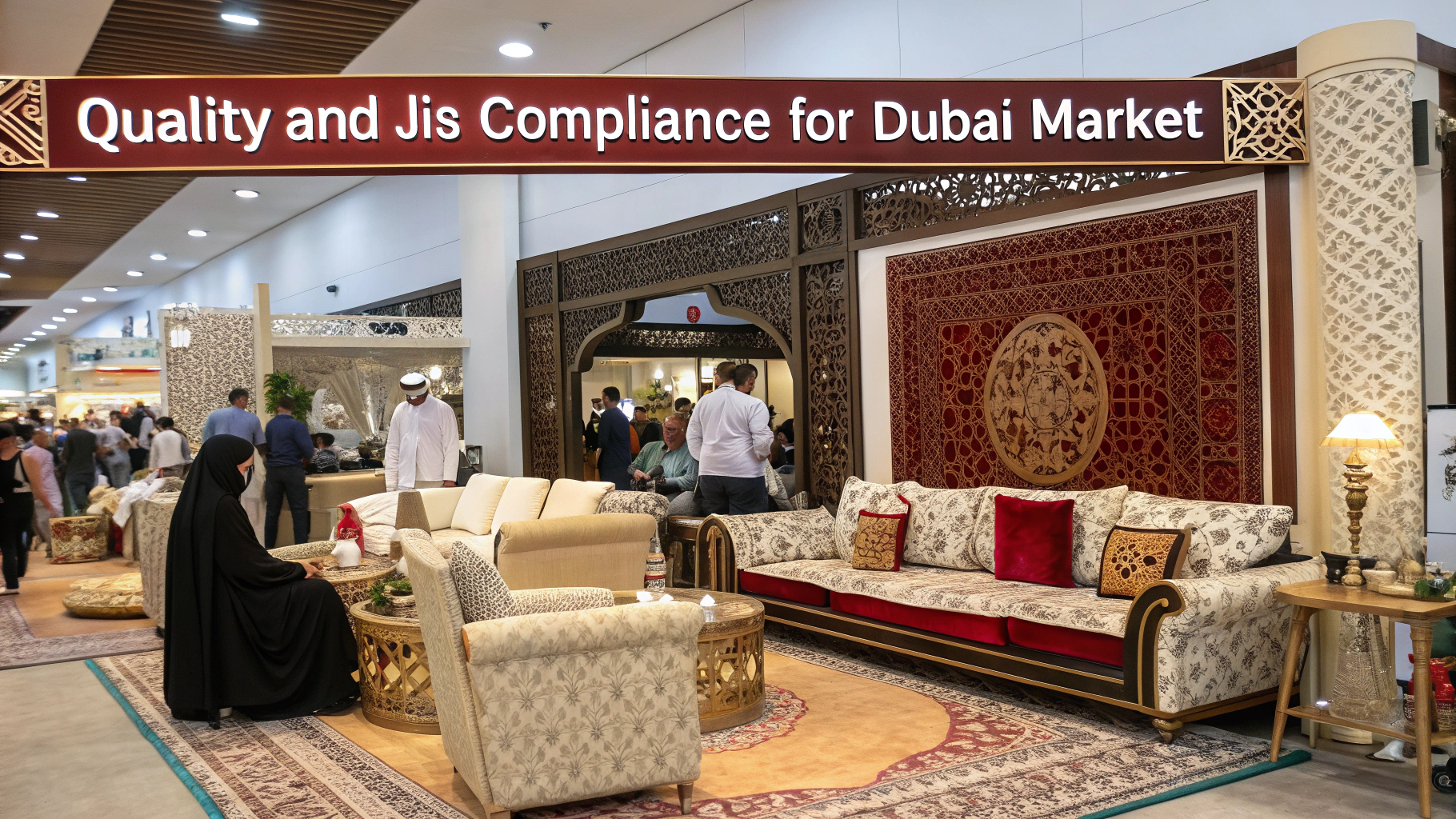
Industry pain points
Products that do not align with JIS standards face low acceptance in Dubai's market, where cultural and design elements play a significant role. Retailers must navigate this complex landscape, ensuring their offerings resonate with local aesthetic and cultural values to gain market penetration.
Starborn's Adaptations
At Starborn Furniture, we have adapted our designs to respect Islamic culture while meeting JIS standards. Our culturally considerate designs boost market acceptance by aligning with local customs and preferences. This adaptation broadens our appeal and ensures our partners’ products are embraced by Dubai's discerning consumers.
Customer testimony
A retailer in Dubai leveraged Starborn's culturally tailored designs, resulting in a notable 30% increase in sales. This testimony highlights the importance of understanding and respecting cultural dynamics in international markets, emphasizing how culturally attuned designs can significantly impact market acceptance and sales growth.
How Does Supply Chain Transparency Boost Consumer Confidence?
In today’s conscious consumer market, transparency in the supply chain is a significant differentiator for retailers seeking to gain consumer confidence.
[^3] for retailers](https://starborndesign.com/wp-content/uploads/2025/03/1741840080939.1958.webp)
Industry pain points
Opaque supply chains deter consumers, particularly in Europe where there is a high value on sustainability and ethics. Without transparency, consumers are left questioning the origins and impacts of their purchases, which can impede sales and affect brand loyalty.
Starborn's transparent practices
At Starborn, we prioritize transparency by providing real-time supply chain updates. This approach meets the demands of European consumers for clear and ethical production processes. Our commitment to transparency not only builds trust but also ensures our partners can confidently market their products as sustainable and ethically sourced.
Customer success story
Numerous French retailers have experienced the benefits of this transparent approach. By leveraging Starborn's transparent network, they expanded their customer base by 20%. This outcome demonstrates the power of transparency in fostering consumer trust and expanding market reach, further solidifying the importance of ethical business practices.
How Can Ecological Collaboration Enhance Retailer Competitiveness?
Retailers face pressure to maintain ecological responsibility while balancing cost-efficiency. Collaborative ecological efforts can enhance competitiveness.
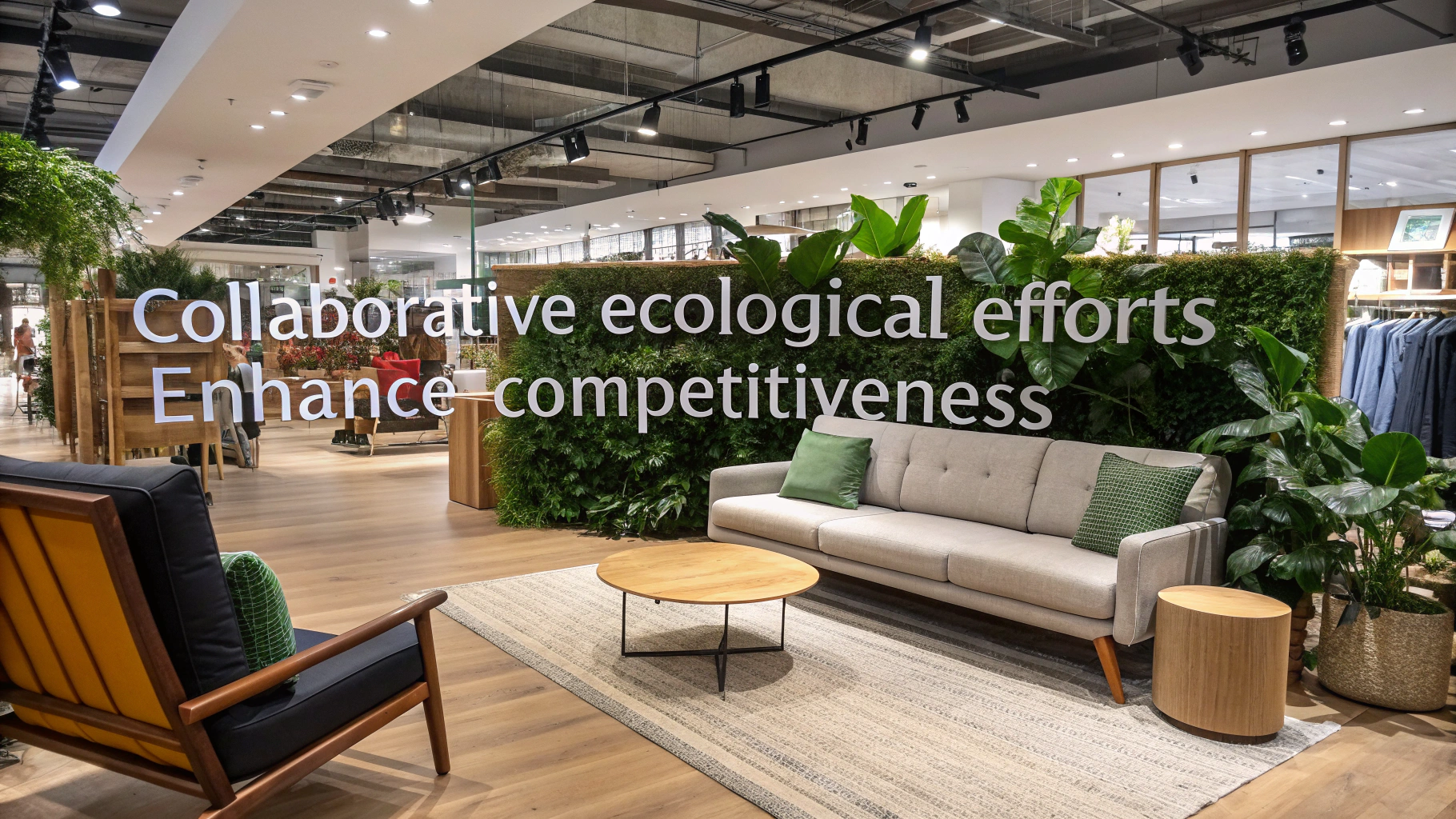
Industry pain points
Many independent retailers struggle to balance eco-friendly practices with profitability. Consumers are increasingly environmentally conscious, yet the costs associated with eco-friendly production can deter retailers from adopting sustainable practices.
Value through platform collaboration
Starborn Furniture bridges this gap by connecting production and sales through eco-friendly practices on our platform without inflating costs. Our strategic collaborations enable our partners to implement sustainable solutions, thereby meeting consumer demand for ecological responsibility without sacrificing their bottom line.
Partnership outcome
A collaborative project in Germany exemplifies the success of this approach. By teaming up with Starborn, retailers developed eco-friendly displays that increased sales by 18%, all while reducing their carbon footprint. These outcomes prove that ecological collaboration can drive competitiveness and profitability.
Conclusion
Visual merchandising is vital for furniture retailers to attract and retain customers. By aligning certification systems, demonstrating production capabilities, and embracing flexible production, retailers can enhance their market position. Starborn Furniture empowers retailers with a transparent, collaborative approach, driving growth through trust, innovation, and ecological responsibility.

